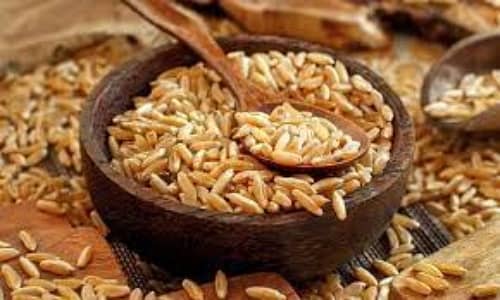Kamut benefits, side effects - Multigrain good for diabetes
Kamut Nutrition

| Kamut (100g) Nutrition | |||
| Carbohydrate | Protein | Fat | Calories |
| 68g | 15g | 2.5g | 338kcal |
| Main Nutrition | Dietary fiber, magnesium, minerals | ||
| Main Benefits | Improves diabetes, detoxifies, and improves cardiovascular disease | ||
| Side Effects | Excessive intake causes abdominal pain and diarrhea | ||
Kamut belongs to the Poaceae family and is a type of wheat. That is why it is also called Khorasan wheat. Kamut means wheat in ancient Egyptian, and is now well known as a brand name as the trademark Kamut has been registered. Kamut is similar to wheat, but is larger than wheat and has a nutty, nutty taste. Kamut is gaining popularity as a health food thanks to the various ingredients it contains.
2. Kamut Benefits

1. Improvement of immunity
Kamut is a good source of zinc, which can help boost immunity. Zinc helps boost the immune system and helps form white blood cells. This is effective in improving the body’s reaction time to detect and neutralize infections. Zinc is also effective in blocking viruses from penetrating into the nasal cavity and causing infection. This can also help prevent diseases such as colds.
2. Bone Health
Kamut contains ingredients that support bone health, such as manganese and magnesium. Manganese helps with bone loss that increases with age. It is also an ingredient involved in bone metabolism. Therefore, consuming kamut helps maintain strong bones and is also effective as a treatment for bone damage diseases such as osteoporosis. Magnesium is also an essential mineral for preventing the early onset of osteoporosis and is effective for bone health.
3. Cardiovascular Health
Kamut is a high-fiber food that is rich in fiber. This helps the digestive system remove toxins and waste from the body. This is effective in lowering cholesterol levels. And the various antioxidant ingredients contained in kamut also help reduce cholesterol levels. It is also effective for vascular health by reducing oxidative stress and preventing waste products from accumulating in the blood. This helps prevent various cardiovascular diseases.
4. Detoxification
Kamut is a source of phosphorus, a mineral excellent for detoxification. Phosphorus is a mineral involved in various cellular activities in the body. Phosphorus plays a role in excreting accumulated toxins and waste products through urine, which helps detoxify the body. It also prevents excessive accumulation of waste products, such as excessive uric acid, sodium, and fat, and excretes them through urine. And phosphorus is effective in cleansing the body by helping to balance substances in the body.
5. Digestive Health
Kamut is rich in fiber, which helps with digestion and intestinal health. The fiber contained in kamut helps to combine various wastes in the intestines and excrete them through feces. It also activates bowel movements so that bowel movements can proceed smoothly. This helps prevent and improve conditions such as constipation and irritable bowel syndrome. And kamut is effective for overall gut health by supporting beneficial bacteria in the gut.
6. Improved diabetes
Consuming kamut may help people with diabetes. This is thanks to the rich fiber contained in kamut. It is effective in controlling blood sugar levels by helping to lower sugar levels in the blood. Kamut also contains elements such as selenium and magnesium. These also help people suffering from diabetes by slowing down the rate at which glucose is absorbed into the body. Magnesium is also an ingredient that regulates blood sugar levels and is effective in improving diabetes.
3. Kamut How to cook rice
4. Kamut Side Effect
- Because kamut is rich in fiber, excessive consumption may cause symptoms such as indigestion.
- Kamut is rich in selenium. If consumed excessively, symptoms such as abdominal pain or diarrhea may occur.